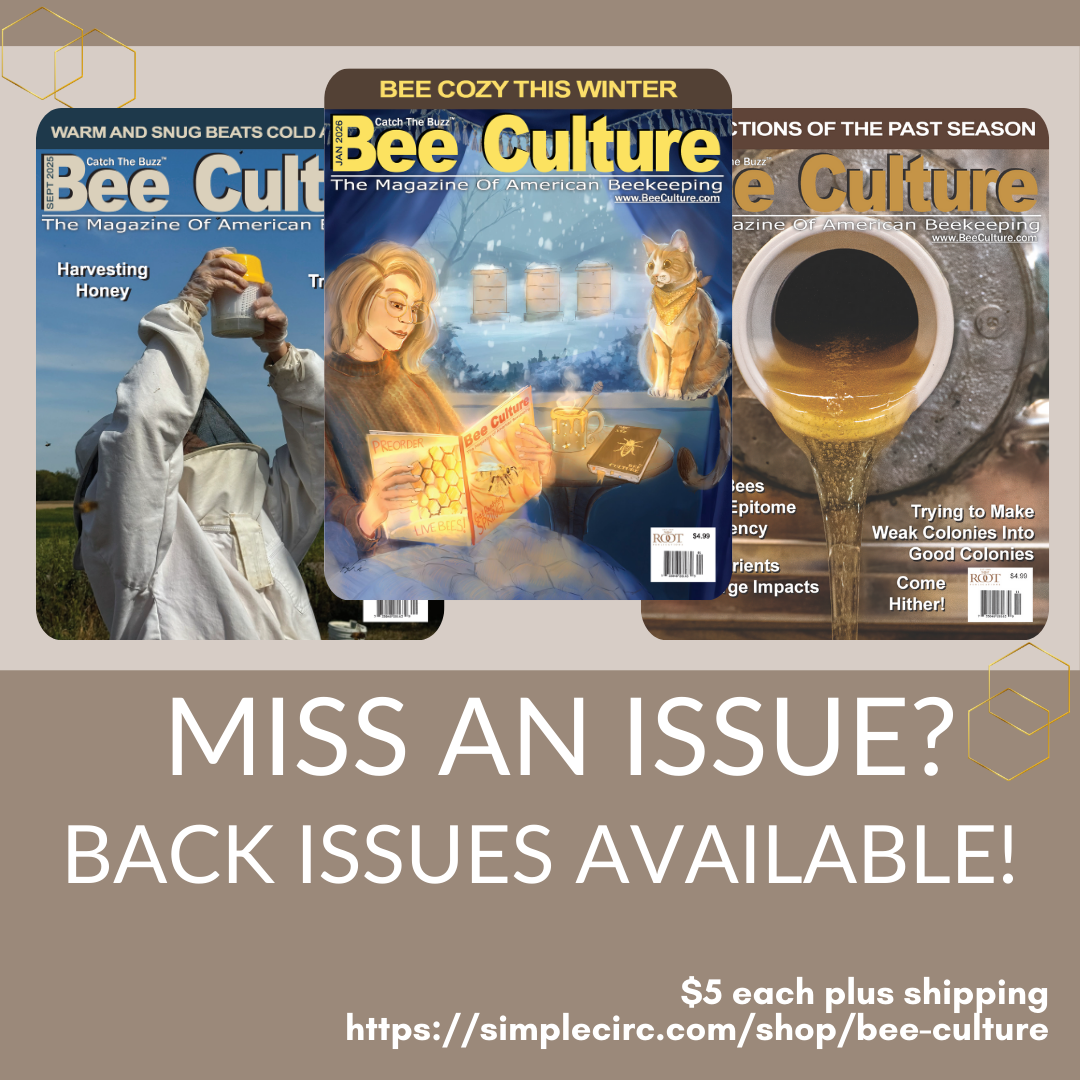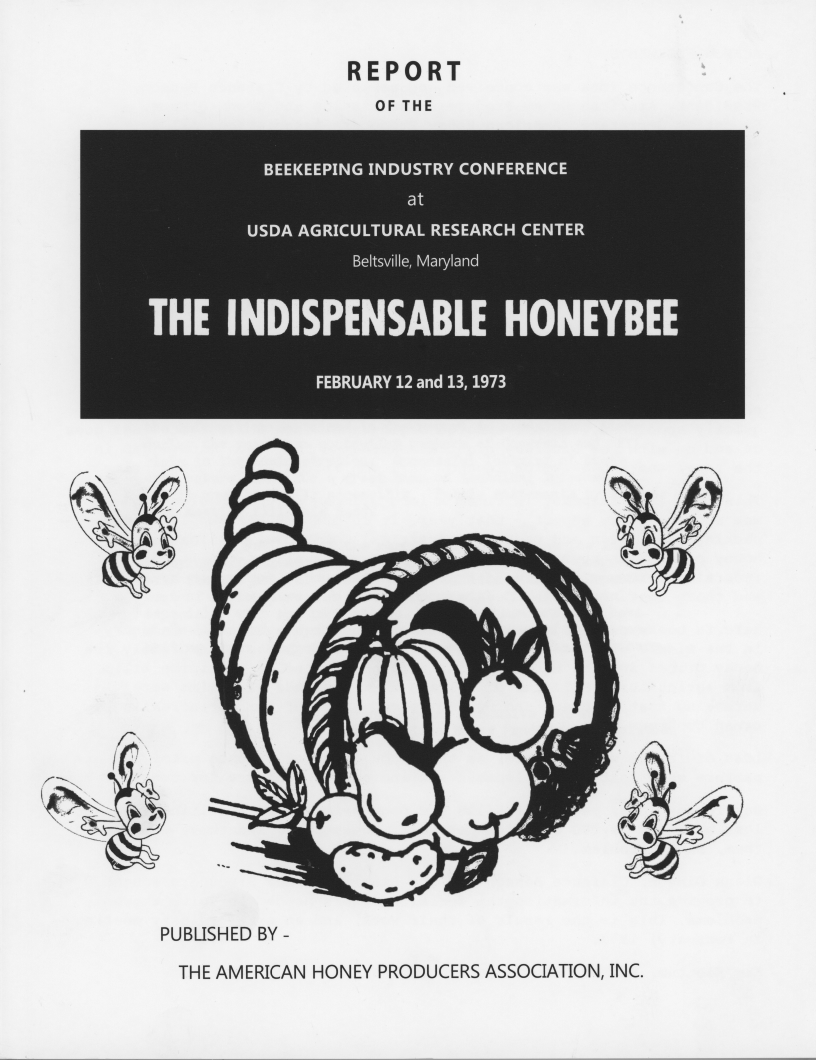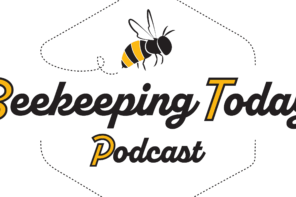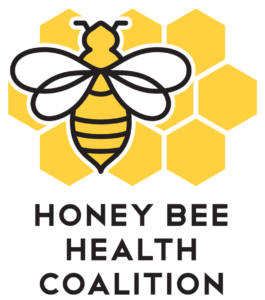1973 vs. 2015: Importance of Bees
G. Splevin
In previous issues of Bee Culture magazine I have written of the 1973 report, “The Indispensable Honey Bee.” In 1973 and today we continue to examine “the value of bees as crop pollinators.”1 Then and now we appear to acknowledge the crops dependent upon pollinators, the crops that benefit from pollinators, and the “few crops whose need for bees is not too well known because there has not been sufficient research to clarify their pollination requirements.”2 In 1973 the value of pollination was $7,671,000. Today the value of pollination to crops is $22-30 billion. However, academic scientists, non-governmental organizations, and government still seek sufficient research to define the pollination needs and value to many crops. A similar refrain is also duplicated in 1973 and today that “the beekeeper is not young,”3 and few beekeepers are being replaced after retiring or leaving the industry. Sons and daughters of beekeepers in 1973 and today have been attracted to jobs offering more security with higher wages, and requiring less strenuous work across long periods of time. The lack of research concerning the value of pollination continues to short-change growers across the forty-three years. In 1973 pesticide usage increased to protect crops from pests, yet yields decreased. The connection in 1973 was not made that the pesticides killing bees had the effect of reducing crop yield for those crops dependent upon, and benefitted by honey bees.4 This connection is still weak today, due to lack of research, and a misunderstanding of the basics of agricultural balance. In 1973 the timing of pesticide applications was key to protecting honey bees, as it is today. And as in 1973 and today the solution proposed is still that beekeepers must move their bees so pesticides can be applied.
“. . . it is nearly impossible for a beekeeper to protect his bees. To move means the loss of a honey crop and income in addition to the cost of moving. . . . “Safe” areas from pesticides are only “starvation” areas for bees.”5 George W. Ware, Head, Dept. of Entomology at the University of Arizona-Tucson bemoaned the “woefully inadequate education program of the Cooperative Agricultural Extension Service.”6 In 1973 he states only four states have full-time Extension Apiculturists, “and only another 13 Extension Specialists with some bee responsibilities.”7 In 1973 we were “losing many times more colonies from pesticides than from disease.”8 Granted these 1973 losses were pre-Varroa! Dead bees, however, are still dead bees whether the stressors are pesticides, starvation, pests, or diseases.
In 1968 a Task Force was appointed to develop a National Program of Research for Bees and other Pollinating Insects. In 2015 the country received the report from a White House Task Force culminating in a National Strategy to Promote the Health of Honey bees and other Pollinators. The 1968 report released recommendations in March 1969 to “provide more information on the total value and proper use of pollinating insects in crop production.”9 Additionally, the Report recommended research on “other insects commonly associated with flowers, and their significance in the pollination of crops.”10 The Task Force sought better “coordination and direction of research” at existing bee labs, and called for increased “Scientific Man Years” in the areas of “contribution of insect pollinators in crop production,” “management practices for improved pollination,” “environmental management to improve bee pollination,” and “genetic and breeding studies on bees to improve pollination.” George Ware stated these recommendations were valid in 1969, and in 1973; and they are still valid today 43 years later. What happened to the political will, the federal budget support for USDA researchers, the leadership at the state and federal levels that these recommendations remain unfulfilled?
The 2015 National Strategy to Promote the Health of Honey bees and Other Pollinators includes similar recommendations, but with three main goals:
- Reduce honey bee colony losses to economically sustainable levels;
- Increase monarch butterfly numbers to protect the annual migration; and
- Restore or enhance millions of acres of land for pollinators through combined public and private action.11
Mr. Ware recommended giving the “National Program Staff Scientist for Bees, their complete support and a free hand in making any changes in research direction he deems necessary, even to the end of a complete reorganization of what used to be the Apiculture Branch . . .”12 brings to mind issues made public last year by the Public Employees for Environmental Responsibility. Comparisons then and today arise when one examines the concerns of USDA researchers being stifled by their USDA Administrators. One can read the concluding paragraph of George Ware’s “Bees in Agriculture – Their Importance and Problems” report at the 1973 Conference and the same issues ring true today.
“In summary, honey bees are essential in maintaining the pollination of $7.6 billion of our national agricultural production, while grossing less than $50 million for their keepers. The availability of pollinating bees is declining steadily, down 26% over the past two decades. Beekeepers are not organized, not young, and not growing in numbers to keep up with our pollination needs. Growers unintentionally kill bees with pesticides without knowing their value as pollinators. The increased use of organophosphates as substitutes for the chlorinated insecticides has accentuated bee kills, accounting for much of the decline in numbers of bees and their keepers in some areas. Despite the abundance of state bee inspectors and smattering of extension apiculturists, the real need in today’s agribusiness is state pollination specialists to bring beekeeper and grower together. The Federal Extension Service is also in need of a full time pollinationist. And finally, the federal bee research program is the only salvation for the immediately pressing pollinating bee problems. Its research direction needs redesigning to reflect the needs of the times, with additional administrative and monetary support.”13
I ask my fellow beekeepers, USDA, and State Agricultural officials, why has nothing changed in forty-three years for the honey bee and beekeepers? Why do we continue to “reinvent the wheel” and devise no solutions? George Santayana wrote in 1905 in his The Life of Reason, “Those who cannot remember the past are condemned to repeat it.” This quote is also oft times assigned to Winston Churchill. I believe Mr. Churchill’s full quote applies to “The Indispensable Honey Bee” in 1973 as much as it does 43 years later:
“When the situation was manageable it was neglected, and now that it is thoroughly out of hand we apply too late the remedies which then might have effected a cure. There is nothing new in the story. It is as old as the sibylline books. It falls into that long, dismal catalogue of the fruitlessness of experience and the confirmed unteachability of mankind. Want of foresight, unwillingness to act when action would be simple and effective, lack of clear thinking, confusion of counsel until the emergency comes, until self-preservation strikes its jarring gong–these are the features which constitute the endless repetition of history.”14
I hope this “curious guy” is inspiring contemplation, and discussion as beekeepers lead our state beekeeping associations, and national beekeeping organizations to willingly take simple and effective action for our bees and our industry. Or will we all wait until 2059 for history to repeat itself, again?
1“The Indispensable Honey Bee,” published by The American Honey Producers Association, Inc, 1973; page 29, (re-print available from Bee Culture)
2Ibid.
3Ibid., page 30
4Ibid., page 31
5Ibid.
6Ibid
7Ibid
8Ibid, page 32
9Ibid., page 33
10Ibid.
11Announcing New Steps To Promote Pollinator Health, May 19, 2015 at 9:00 AM ET by John P. Holdren, www.whitehouse.gov/blog/2015/05/19/announcing-new-steps-promote-pollinator-health
12Ibid., page 33
13Ibid., page 34
14National Churchill Museum Blog, Nov. 16, 2012, – House of Commons, 2 May 1935, after the Stresa Conference, in which Britain, France and Italy agreed – futilely – to maintain the independence of Austria, www.nationalchurchillmuseum.org/blog/churchill-quote-history/
“The Indispensable Honeybee, A Report of the Beekeeping Industry Conference at USDA Agricultural Research Center, Beltsville, Maryland, Feb. 12-13, 1973” is available from Bee Culture magazine.









